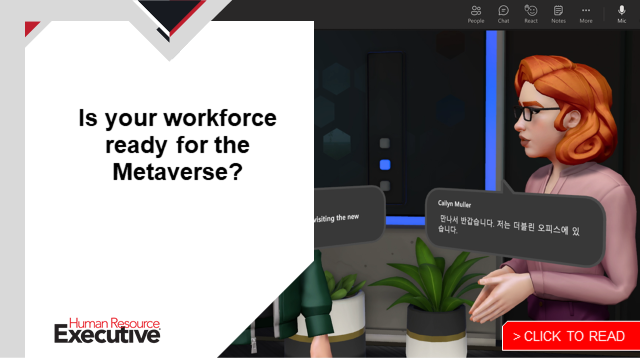One of the most challenging parts of a CHRO’s job is choosing the right HR technology. Not only must the new solutions solve immediate problems, but they must also be positioned to deal with issues that might arise in the coming five to 10 years.
During the vetting and purchasing process, HR technology adviser and analyst Steve Goldberg recommends that HR leaders and their IT counterparts evaluate technology through 10 different lenses. In a recent webinar entitled “How Customers Should Prioritize HR Tech Investments,” he described these 10 lenses for considering the HR tech solutions and the vendors selling them:
- Business value. How does the vendor show that they value your business? It’s not via low pricing, said Goldberg. “One CHRO told me that since a vendor had a willingness to offer a discount, that is not an expression of valuing my business,” he added. HR leaders are looking for more than the most affordable solution.
- Business understanding. How well does the vendor understand the nuances of your business? CHROs should share their company’s values and how they relate to the way they do business with potential vendors. They should also inform vendors of any recent changes in their business priorities and business plans. “What changes are your business going through?” he asked.
- Values and vision. Do the vendor’s values and vision align with you as the customer? HR leaders should work with vendors that have clear and stated values and a dedication to specific market segments. For example, UKG is known for dealing with mid-market companies, while SuccessFactors typically works with larger global firms.

Steve Goldberg
- Vision and tech link. Look for a strong connection between vendor practices and its technology mission. If a vendor focuses internally on mental health, total wellbeing and the voice of employees, for example, it could prove to be a good fit for a CHRO emphasizing similar attention to those areas.
- Platform attributes vs. platform features. Ask which one the vendor emphasizes. Platform attributes are more important because they often take longer to update and improve. “If user experience is a 4 on a scale of 10, it’s not going to be an 8 or 9 in the next year,” said Goldberg.
- Expectations. Does the potential vendor manage them well? If a solution provider is transparent about the quality and efficacy of EX and scalability, it helps set expectations as to how long product improvements will take to implement.
- Target market and proof points. Most HR tech vendors will say they have a target market, and if your industry happens to be one they focus on, this is optimal. Proof points are equally important. “It’s not just that we have a critical mass of customers on this vertical but we understand and deliver results and success stories with real tangible proof points,” said Goldberg.

- Marketing vs. reality. In his 15 years as an HR tech buyer, Goldberg witnessed and expected “padding” in the promises and deliverables in the marketing materials. What’s important is how far ahead of reality the marketing claims are. “One year is reasonable, and 18 months I could live with, [but] if marketing, messaging and positioning are not manifested in the product for two to three years, I would have some personal discomfort around that,” he said.
- Customer success models. Buyers should ask for and evaluate them. This includes putting HR leaders and their teams in touch with like-minded customers.
- Product roadmaps. Customers should “demand” them. If a vendor shows a product roadmap with disclaimers about deliverables, HR leaders are within their rights to ask how they plan to execute those features.
“When I ran product management at PeopleSoft, we wanted the product roadmap process to be rational and defensible. The customer needs to understand that the roadmap might change, but they don’t want the fear that the next customer will hijack the roadmap,” he said.
Losing the attention of vendors and slipping down their list of important clients is a significant concern for HR leaders and their IT professionals. In his earlier work, Goldberg recalled seeing even HR leaders in large, prestigious financial services firms with hefty tech budgets worry that a larger and more prestigious finserv firm could present a bigger revenue opportunity for the vendor, diminishing their importance.
He added, “I wanted to make sure the roadmap was defensible and rational.”
HR tech analyst Josh Bersin will deliver a keynote address entitled “The Disruption Never Stops: What’s New and What’s Ahead in the HR Tech Market” at the HR Tech Conference, he will also be moderating a newly announced breakout panel. Register here.
The post 10 considerations for CHROs when buying new HR tech solutions appeared first on HR Executive.